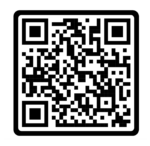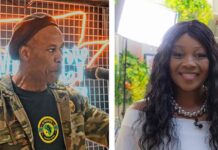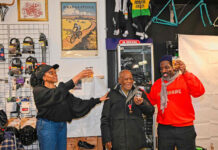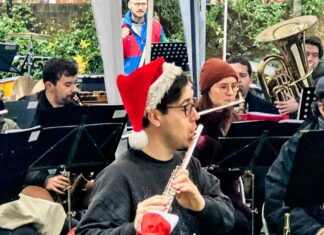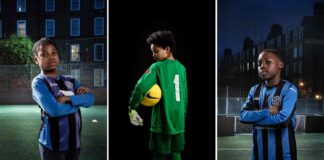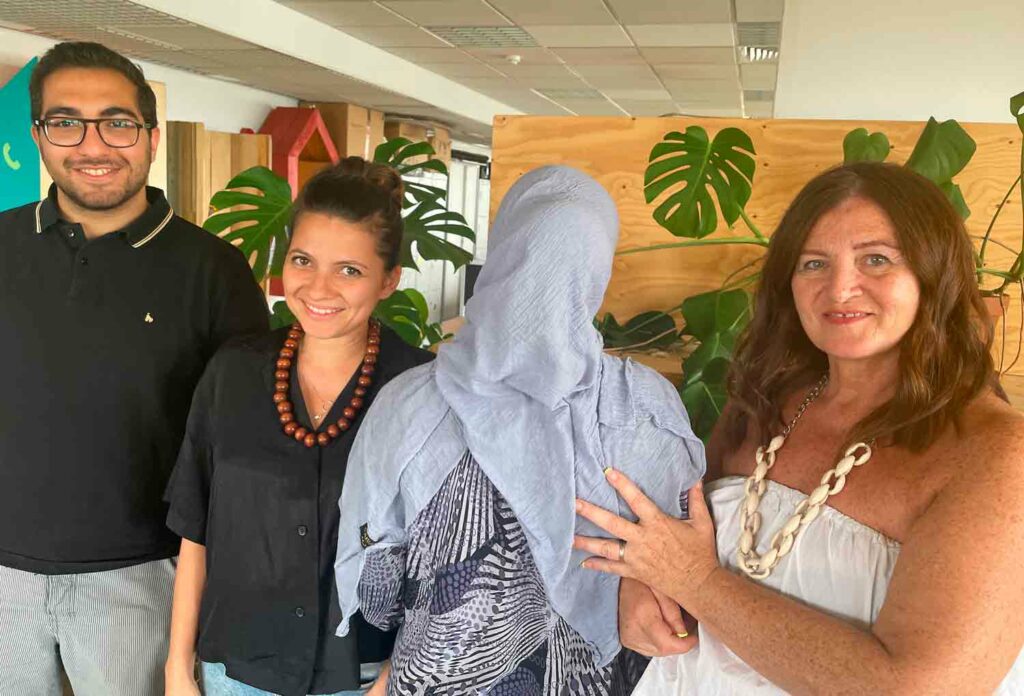
Brixton is not only a place of refugee for people from across the world escaping from violence and oppression, it is also somewhere they will find help and support from local people. Simone Richardson spoke to Anahita Haghi and people she is helping
Brixton is a place “you can effortlessly slip into and belong to,” says Anahita Haghi, founder and a director of Community Arts Box, a community interest company (CIC) dedicated to connecting marginalised groups like newly arrived refugees to the wider London community through the arts.
She is fundraising for an exhibition of art produced by the asylum seekers and others she works with.
One of them is Eman, a refugee who arrived in London last December.
Fleeing violence and persecution, she is one of the people to find a welcome in Lambeth, which became a borough of sanctuary in June.
Anahita Haghi is herself no stranger to a life of sudden departures and upheavals.
She has lived and worked in Brixton for 10 years, but her previous life involved a long journey
Born in Welwyn Garden City, Hertfordshire, she moved to Iran at two years old, leaving at the age of five, due to the Iran Iraq war, and was moving through “my whole primary school life” – London, Tehran, Kuala Lumpur, and Perth, Australia, where she went to secondary school and studied for a visual arts degree at the University of Western Australia.
Her empathy for refugees and asylum seekers, she says, comes from her own background – a “sense of displacement, identity, belonging … always packing and leaving”.
“Community Arts Box is a grass roots CIC that supports marginalised communities through the creative outlet of arts,” she explains.
“Through our work with these communities, including refugees and disadvantaged youth, we foster positive social impact, social inclusion and accessibility.
“Over the last seven months, we have led a community initiative ‘We Are Here’.
“We have curated weekly art sessions with asylum seekers who are currently stuck in a hostile and isolated environment, living in a hotel.
“This has provided a safe space for self-expression and for their stories to be told through the arts.
“Across intimate and explorative drawings, paintings, photography, music and poetry, we have worked together to capture the essence of their experiences of being asylum seekers in today’s world and, often, the trauma that shadows this.
“We want to share their stories with the world and are fundraising to set up a five-day exhibition, We Are Here, allowing their personal accounts to be seen and heard.”
Helping Anahita with this project is Charli Hogan-Hooker, a Brixtonian of 38 years, who was born in Ireland.
She is a facilitator, running art sessions. “I am always involved in the community, she says. “I run projects and installations in the We Are Here group, capturing stories through non-verbal communication.’’
Nima Mardani, Community Arts Box operations officer, is someone else who contributes as a volunteer. An accountant, among other things, he explains: “I feel more free than I have ever felt in life.
“It keeps my mind active, and I enjoy helping people. It is an opportunity to understand London more and to support fellow asylum seeker neighbours who are living in hotels – staying engaged and busy rather than isolated,” he says.
Nima is also participating as an artist for the We Are Here exhibition.
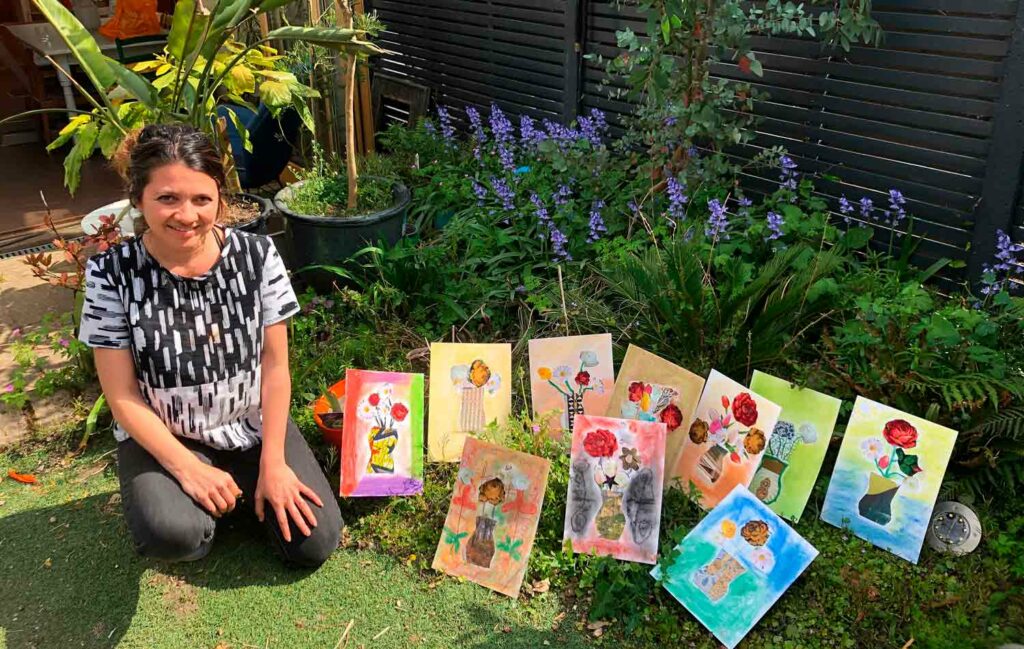
Eman, a qualified architect in her own country, is one of many people to arrive in London “looking for a safe life”.
“People were being shot, arrested and imprisoned,” she says of her former life. “I just wanted a good life with freedom, peace and justice. So I left, as I didn’t feel safe working for the government there.”
She had been arrested for defying the military. She was released, but when she went home “it was like imprisonment”.
“My family helped me and they paid for my transport,” Eman says.
“I had my passport and a visa. In the airport I was wearing big-size glasses and covering my face with my scarf because I might have been seen by someone who recognised me – and they always keep watching.
“So I escaped. Because of coronavirus you could cover your face with a mask – so I could get out!”
Now art helps her escape from bad memories. “I live in a hotel in South London through the Home Office. Art sessions help us … having contact with other people. At our hotel there is no contact or community area.
“Drawing and sketching, and many types of activities at Anahita’s art lessons, help as a release.
“I have the freedom of art, using any colour I want. Sometimes I like black and white and sometimes other colours … it really helped me.
“I have had contact with family and friends, but sometimes the government cut the internet and phone calls.
“Life is safe here. No one will arrest anyone or kill anyone,” Eman says.
“There is some fair freedom here and, when I compare it to my country, I feel sad.
“When I look at the children and their life here, it is very nice for them. And I look to my children; I feel they have lost their lives there,” says Eman.
Anahita, who lifted her own spirits through her art lessons, is now training at Goldsmiths, University of London, to become an arts psychotherapist. She has just finished a foundation course and will start a masters course in September.
Her life has also been lifted by living in Brixton with her husband and two children, who are nine and three.
“The smells, wandering around the hustle and bustle of markets – that is much like my own early childhood wandering through the markets in the north of Iran with my grandmother …
“Sounds, steel pan drums … music on every corner … textures … vibrancy …
“A place where you can effortlessly slip into and belong to … so ethnically diverse.”
Anahita is looking forward to the We Are Here exhibition in October – date and venue to be confirmed – and is appealing for help to “bring the exhibition to life’’, saying donations towards its cost will be greatly appreciated.
Donate at gofundme or use the code
Find out more about Community Arts Box

